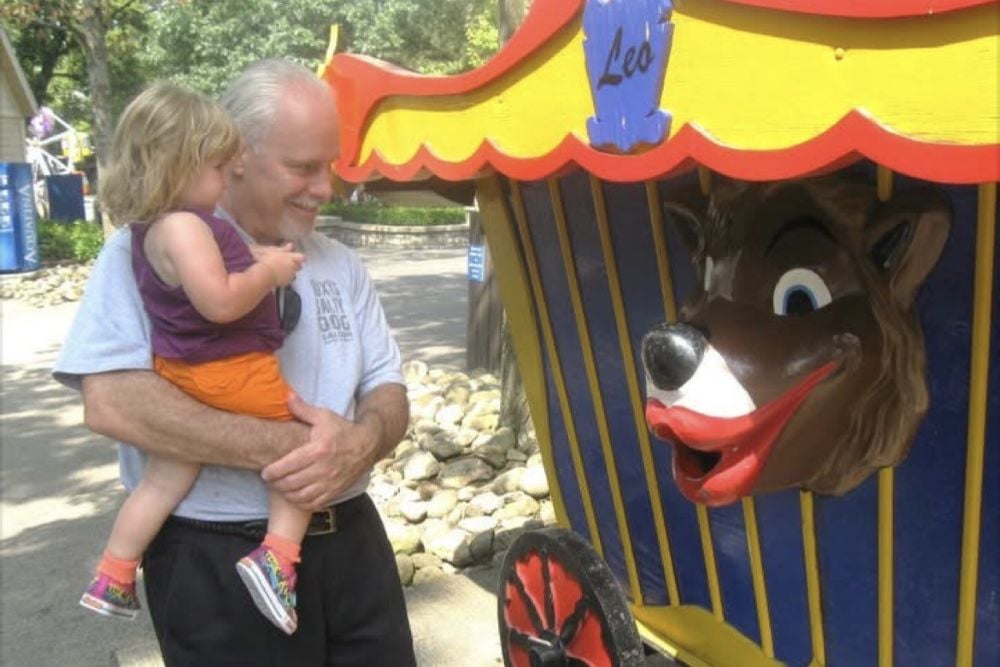Collier’s Weekly: How We Got to Mount Pleasant
The ignorant display in the borough’s Halloween parade did not occur as a random quirk; it’s the result of the way we’ve been engaging with history and politics.
We have spent the better part of a year watching the discourse — better termed the din — around politics degrade into unthinkable vitriol and shameful displays. Much to the embarrassment of Western Pennsylvania, one of the most disgusting occurred in nearby Mount Pleasant, 40 miles or so southeast of Pittsburgh.
During the borough’s traditional Halloween parade, a group rolled through town on a makeshift float: a small vehicle captained by a man wearing a mask depicting former President Donald Trump, flanked by a pair of snipers. Another participant followed, dressed in the manner of Vice President Kamala Harris and led along in chains.
Condemnation was swift and total, as it should be. It’s easy, however, to condemn an act of hatred; it is easy to explain how the actions of a couple half-wit racists do not represent the views of the greater community. What’s difficult is pausing to explore the conditions that make room for such displays. Such debasement and stupidity do not occur as random quirks; they are the expected byproduct of conditions currently present in this country.
The ingredients are ignorance and tribalism. Those two generally produce a variety of nasty outcomes.
Even ignorance, however, must be fostered. Knowledge is the preventative measure against ignorance — knowledge of history, in particular. Unfortunately, we live in an era when many Americans are desperate to avoid any knowledge of the past; a dangerous and destructive fear of honesty has taken root, and it aims to remove any open acknowledgment of reality from our nation’s textbooks. In many states, conservative activist groups are working to pass laws against facts deemed divisive or upsetting; many states have successfully restricted the ability of instructors and historians to accurately teach.
Such fear of reality is spreading to museums, as well; a report last week revealed that the National Archives are slowly removing material that might upset or challenge conservative visitors, from civil rights to indigenous people to information on Japanese-American internment during World War II to references to the invention of the birth-control pill.
What happens when you allow Americans to be kept ignorant of history? What happens when we pretend that the sins of our fathers have no bearing on the modern day? The parade in Mount Pleasant is what happens — a heinous act committed by a group of people who have no idea what it means to depict a Black woman in chains and certainly have not been taught any empathy for life experiences different from their own.
If you allow people to remain ignorant of reality, they’ll have a tough time engaging with it.
That isn’t to dismiss the display in Mount Pleasant as simple ignorance; there was real hate, and real violence, on display in that parade. But it does take impressive ignorance to believe that such a hateful idea is acceptable and will go unchallenged; the gap between private animus and public antagonization can be crossed only by someone who is so ignorant that they assume their prejudice will be welcomed.
The other ingredient, here, is a more modern one. Tribalism is nothing new; there are tens of thousands of moments in history during which a people were sharply divided. What’s new — or at least rare — is the contemporary trend toward worship of political candidates.
We shouldn’t be dressing up as political figures for Halloween. Beyond a campaign-season lawn sign, we shouldn’t be flying their names from flagpoles or wearing their names on hats or T-shirts. Politicians are not meant to be our heroes, our moral leaders or our gods.
They’re civil servants. We’re supposed to keep them accountable, not carry their banners.
Your job at every election is to select the viable candidate whom you feel most closely aligns with your views. Your job in between each of those elections is to harangue and lobby those candidates to do a better job. It is both un-American and ineffective to profess love and adoration for a political leader; we are meant to constantly strive in pursuit of a more perfect union, not pick our favorite person and cheer them on no matter what. Such cults of personality do nothing but blind us to the faults and shortcomings of those figures.
Political figures can often inspire and excite, but they are not meant to be embraced in the way we support a sports team or favorite band. We are not meant to have a favorite president or politician; we make our choice, then we get back to the work of demanding accountability and action from them.
If you’re dressing up as your favorite president for Halloween — if you have a favorite president, in fact — you’re approaching politics like football. It’s not; it’s the flawed and deliberate work of running an infinitely complex society.
And if you’re leading a Black woman on chains down the street, you’re a racist with no grasp of history.
The good news is that both ills have the same cure: Knowledge. Our education must be unflinching, honest and total; our civic engagement must be focused on constant progress and informed debate, not cheering and flag-waving. We can prevent such displays only by committing to better citizenship.
That used to be a goal in this country. We used to strive to produce better, more engaged citizens. Nowadays, such goals don’t sell as many T-shirts.













